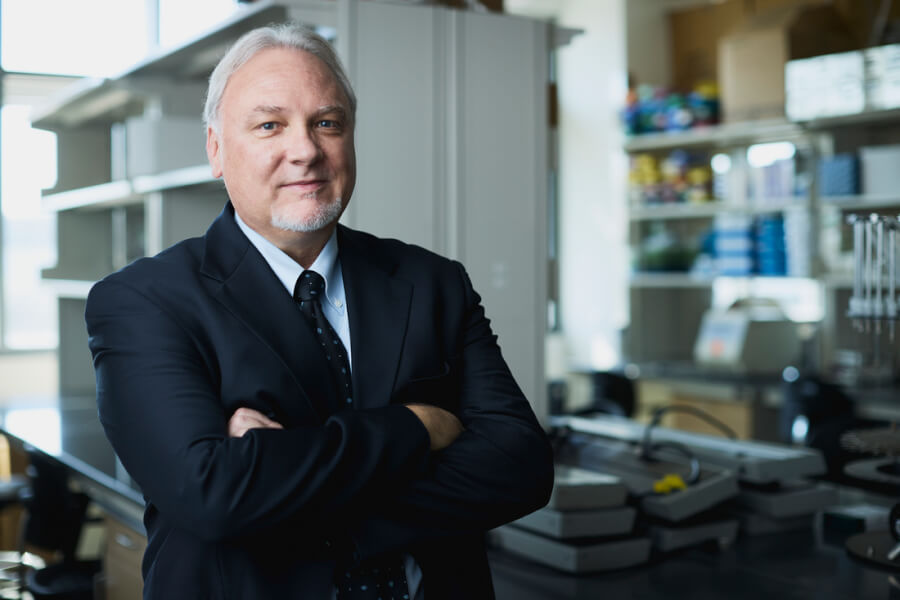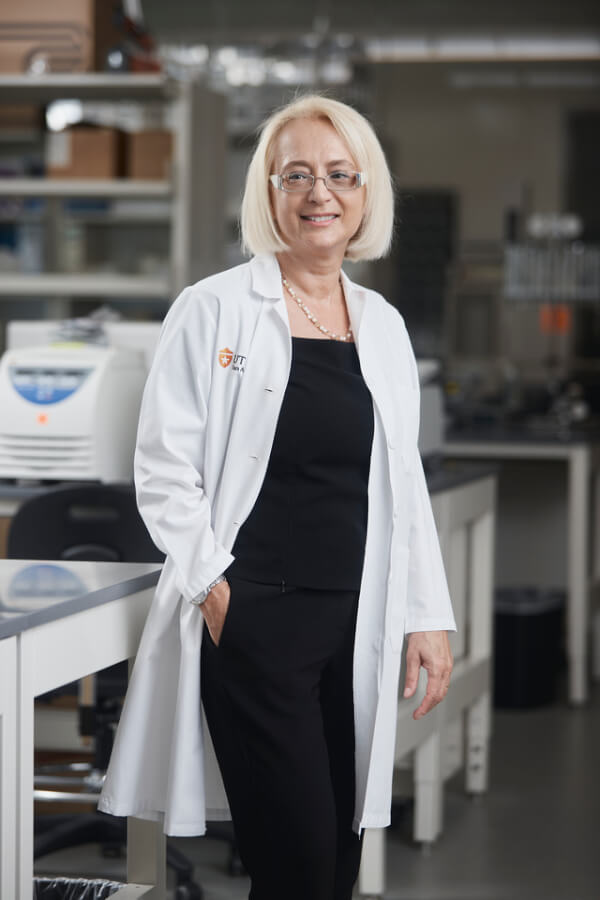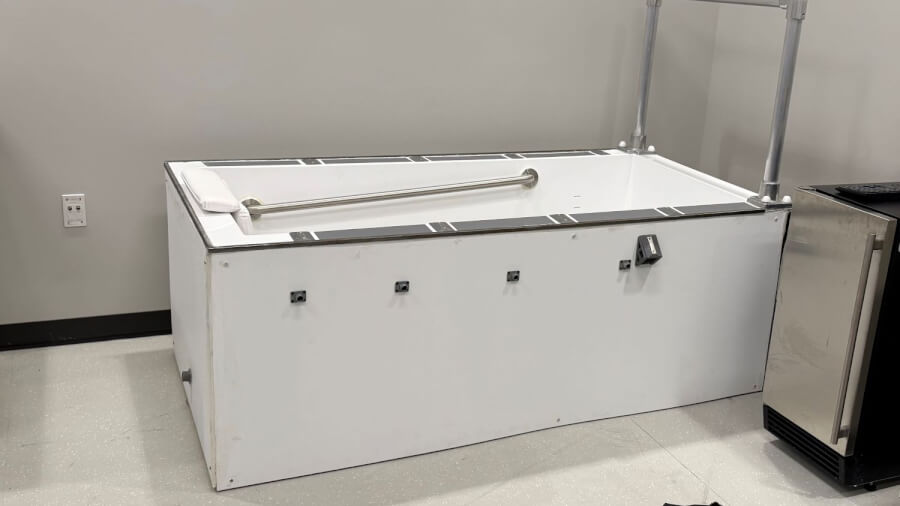More than 600 teams from 58 countries around the world entered the XPRIZE Healthspan competition. That number has now been whittled down to 100 semifinalists and 40 top award-winning milestone teams, including a team at The University of Texas Health Science Center at San Antonio (UT Health San Antonio) Sam and Ann Barshop Institute for Longevity & Aging Studies (Barshop Institute).
In 2023, XPRIZE Healthspan launched a first-of-its-kind $101-million, health-based seven-year competition. In the past century, life expectancy has more than doubled, but the length of time people live with minimal health complications or disability, referred to as healthspan, has not increased. This means people are living more of their lives with chronic and serious health conditions or disabilities. XPRIZE Healthspan aims to close this gap by incentivizing teams to develop a treatment or therapeutic that can be delivered in one year or less, to adults aged 50-80 with a goal of adding 10 to 20 years of healthy life.
On May 12, in a ceremony in New York City, the top 100 teams were recognized as semifinalists with the top 40 teams selected as Milestone 1 award winners. Milestone 1 winners each receive $250,000 to support their research and move toward clinical trials in the next phase of competition. Among the Milestone 1 awardees is Rejuvenation Through Low Frequency Ultrasound, a team of UT Health San Antonio scientists who are investigating the potential of ultrasonic treatment to rejuvenate senescent cells.
Meet the research team
The UT Health San Antonio team includes Blake Rasmussen, PhD, chair and professor of the Department of Cellular and Integrative Physiology; Elena Volpi, PhD, director of the Barshop Institute for Longevity and Aging Studies and professor in the Department of Medicine, Division of Geriatrics, Gerontology and Palliative Medicine; and postdoctoral fellows Sean Kilroe, PhD, and Sanjay Kureel, PhD. Their research builds on work that Rasmussen and Kureel began with Michael Sheetz, PhD, a distinguished cell biologist and Lasker Award winner with The University of Texas Medical Branch at Galveston (UTMB), who passed away this spring after a battle with cancer. Rasmussen is committed to continuing the research that they started and said the XPRIZE competition is a valuable part of that mission. Kureel worked with Sheetz in Galveston and was recruited to the Barshop Institute at UT Health San Antonio in March 2025.

“Kureel had a background in cellular senescence and Sheetz was using ultrasound to look at the cytoskeleton. They serendipitously decided to see if ultrasound could rejuvenate senescent cells,” said Rasmussen.
As people age, the body accumulates senescent cells, which are metabolically active but no longer dividing cells that do not die. These cells build up over time and may release substances that contribute to inflammation, cancer and aging-related diseases. Sheetz and Kureel were conducting cellular-level senescence research, and Rasmussen joined them to add his expertise in mouse models. Their early studies indicates that ultrasonic treatment may reverse cellular senescence and bring cells back to a viable state.
Sheetz and Rasmussen submitted an application related to the work for the XPRIZE Healthspan competition and upon notification of the award Rasmussen requested to continue the project at UT Health San Antonio. UTMB, the XPRIZE Foundation and Sheetz’ widow, Linda, agreed to transfer the Milestone 1 award to Rasmussen’s team.

Ultrasonic spa installation
With Milestone 1 funding, the UT Health San Antonio team transferred and installed a specialized low-frequency ultrasound spa at the Barshop Institute’s research clinic. The device delivers painless ultrasonic waves through water and will be used in upcoming human clinical trials. Following regulatory approval, the team will begin a small-scale study in older adults to determine whether ultrasonic treatments improve cellular health and produce functional benefits. Rasmussen said the team will also continue mouse model research to better understand the mechanisms by which ultrasound may reverse cellular senescence.
Ultimately, the team hopes this research leads to a non-invasive, pain-free treatment that rejuvenates the body’s tissues and cells, potentially extending healthy lifespan for older adults.
Strong start to XPRIZE competition
XPRIZE Healthspan Semifinalist teams are exploring a broad range of approaches for extending healthspan, including lifestyle interventions, small molecule and other drugs, medical devices and functional foods. Many teams are proposing personalized or combination strategies, such as pairing dietary changes with medications or other treatments. The common goal — to deliver a therapy that adds at least a decade of healthy life for people ages 50-80.

“Our semifinalist teams are exploring an array of strategies to extend healthspan, from biologics and devices to drugs, lifestyle interventions, and personalized monitoring, coupling breakthrough innovations with feasibility and safety. We’re encouraged by these initial results and are eager to see how these solutions progress as they move toward clinical trials,” said Jamie Justice, PhD, executive director of XPRIZE Healthspan.
Semifinalists will begin clinical trials within the next year and submit data by April 2026. Milestone 2 finalists will be announced in July 2026, narrowing the field to 10 teams eligible for a $10 million prize. The final phase of competition will be 2026-2029, culminating in the selection of one grand prize $81-million winner in 2030.
XPRIZE Healthspan is made possible through support from Hevolution Foundation, SLOVE FSHD, GSK and individual donors.


